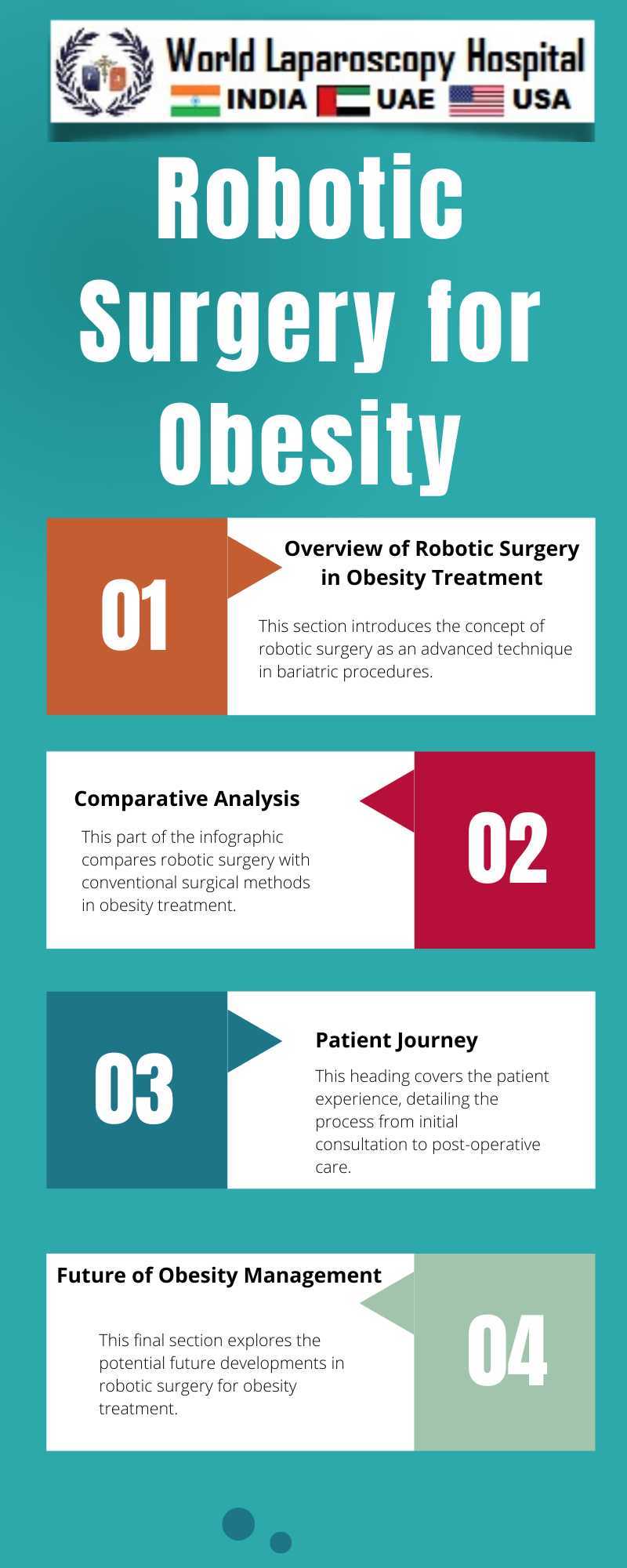The world of medical science is continually evolving, and one of the most promising advancements in recent years is the integration of robotics in surgical procedures, particularly for obesity management. Obesity, a global health concern, has been traditionally managed through various bariatric surgeries. However, with the advent of robotic surgery, a new horizon of precision, efficiency, and safety has opened up for patients battling obesity.

The Rise of Obesity and Traditional Bariatric Surgery:
Obesity is not just a cosmetic concern but a medical problem that increases the risk of diseases like heart disease, diabetes, high blood pressure, and certain cancers. Traditional bariatric surgeries like gastric bypass, sleeve gastrectomy, and adjustable gastric band have been effective in weight loss and improving obesity-related conditions. However, these procedures come with their own set of challenges, including the risk of complications, longer recovery times, and varying success rates.
Robotic Surgery: A Technological Marvel in Medicine:
Robotic surgery, spearheaded by systems like the da Vinci Surgical System, has revolutionized many surgical fields, including bariatric surgery. This technology offers enhanced precision, flexibility, and control beyond the capabilities of the human hand. The surgeon operates through a few small incisions, using a console with hand controls and a 3D high-definition view of the surgical area.
Advantages in Bariatric Surgery:
The precision of robotic surgery translates into numerous benefits in the realm of bariatric surgery:
- Reduced Trauma to the Body: Smaller incisions mean less trauma to the body and reduced risk of wound complications.
- Greater Surgical Accuracy: Enhanced precision and control allow for more accurate and delicate tissue handling, which is crucial in obese patients where visibility and space are limited.
- Lower Risk of Complications: Studies have shown a reduced risk of complications like gastrointestinal leaks in robotic bariatric surgery.
- Faster Recovery and Shorter Hospital Stay: Patients often experience quicker recovery and shorter hospital stays, leading to a faster return to daily activities.
- Improved Long-term Outcomes: The precise technique can lead to better weight loss outcomes and improvement in obesity-related conditions.
Challenges and Considerations:
While robotic surgery offers significant advantages, it is not without challenges. The high cost of robotic systems can limit accessibility for many patients. Additionally, it requires specialized training and expertise, which can be a barrier in resource-limited settings.
Future Perspectives:
The future of robotic surgery in bariatric procedures is promising. Ongoing research and technological advancements are likely to address current limitations, making it more accessible and efficient. The integration of artificial intelligence and machine learning could further enhance surgical outcomes and patient safety.
Conclusion:
Robotic surgery for obesity represents a groundbreaking advancement in bariatric care, offering a new hope for patients. With its superior precision, reduced risk of complications, and improved recovery times, it stands as a significant step forward in the fight against obesity. As technology continues to evolve, robotic bariatric surgery is poised to become an increasingly important tool in managing this global health challenge.